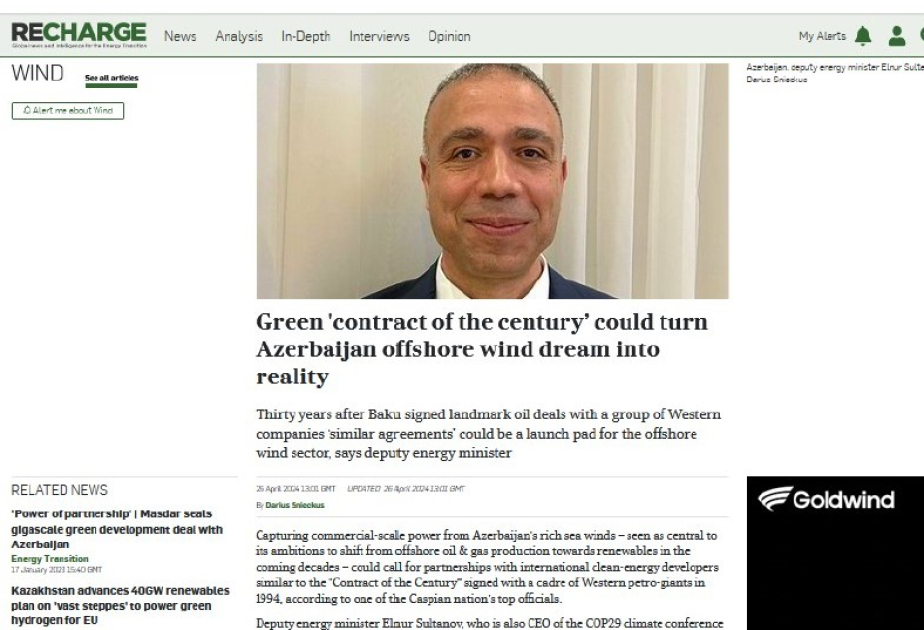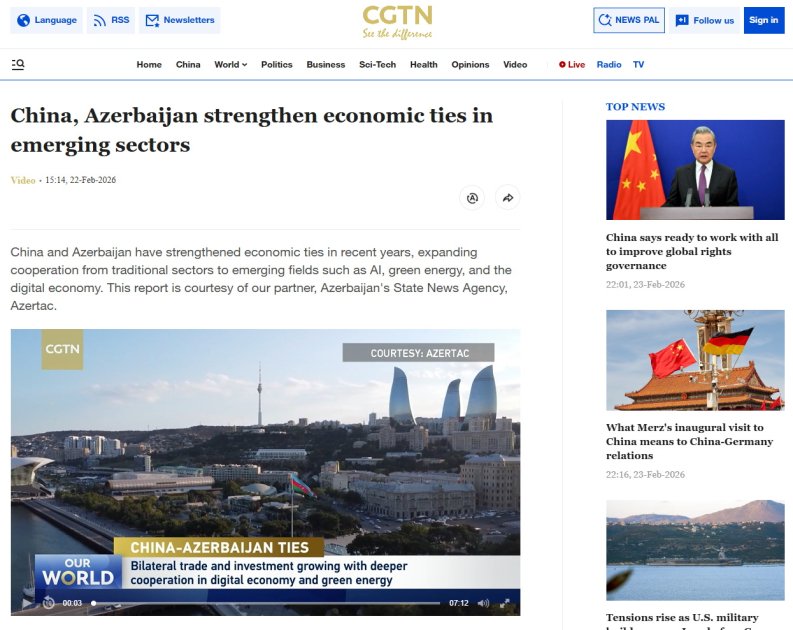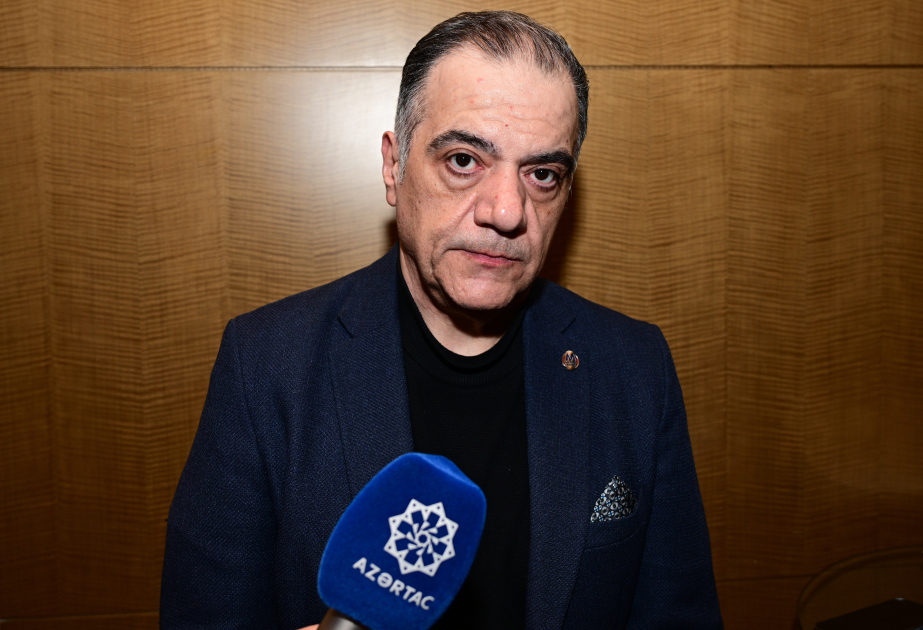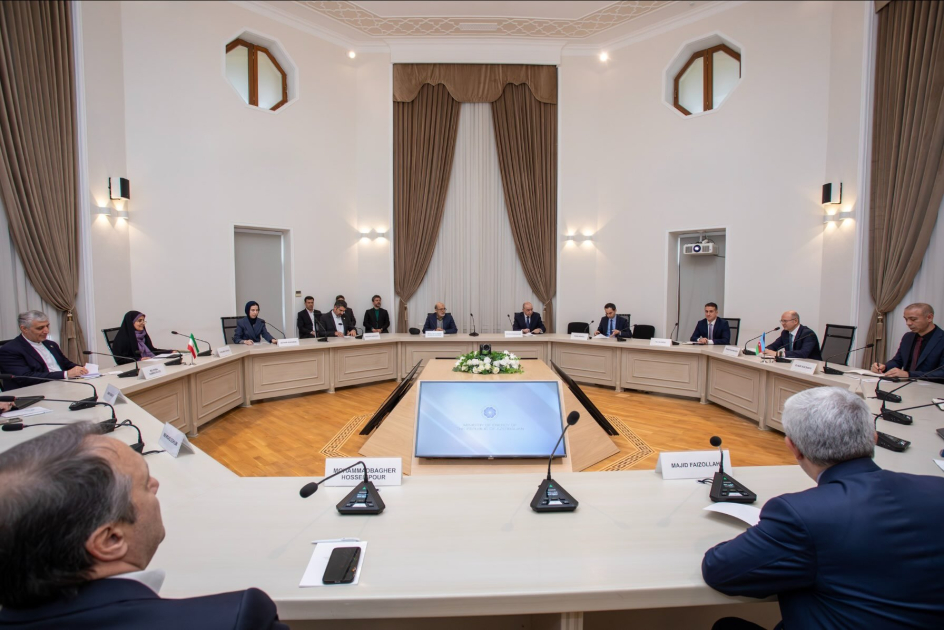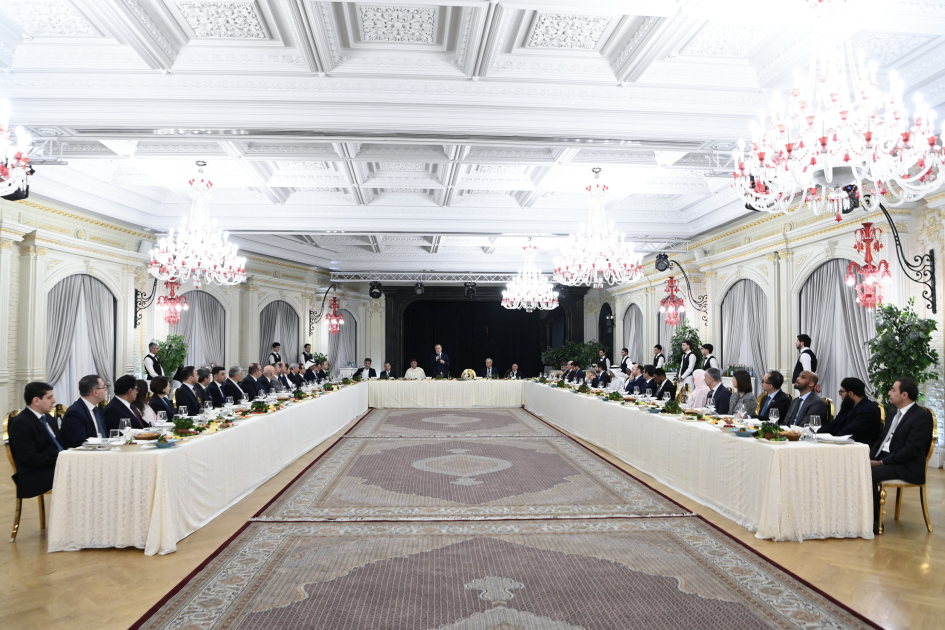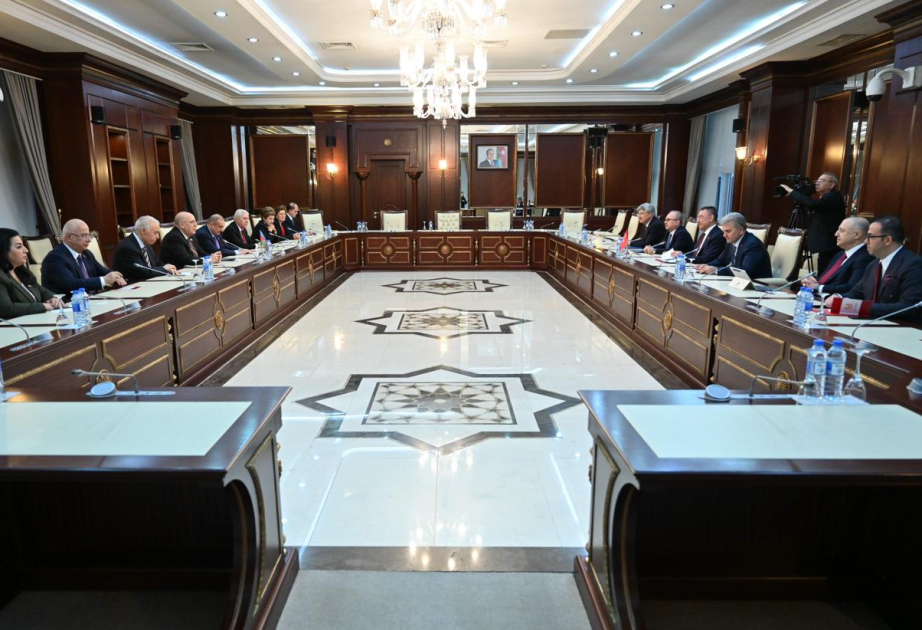Thirty years after Baku signed landmark oil deals with a group of Western companies ‘similar agreements’ could be a launch pad for the offshore wind sector,” said Elnur Sultanov, Azerbaijani Deputy Energy Minister, in an article entitled “Green ‘contract of the century’ could turn Azerbaijan offshore wind dream into reality” published in "Recharge" magazine, the global source for renewable energy news.
AZERTAC presents the article: “Deputy energy minister Elnur Sultanov, who is also CEO of the COP29 climate conference to be held in Azerbaijan's capital city Baku later this year, suggested the heavy capital demands of building offshore wind farms meant the government would be open to something like power production sharing agreements with European developers willing to accelerate the build-out to more than 7GW that the World Bank has ‘roadmapped’ for 2040.
"Strategic partnerships will always be very important to us [in the energy sector]," Sultanov said, noting the recent the-ups with Abu Dhabi-headquartered Masdar and the UK's BP, both of which are building utility scale renewables projects in Azerbaijan.
"If we want to develop Caspian offshore wind then you definitely need local [manufacturing), all the components cannot come from European countries [overland)," said Sultanov.
Teymur Guliyev, Deputy Vice President for Energy Transition with SOCAR, the State Oil Company, described a number of technical issues that have arisen since the work with the World Bank was announced. Masdar last year signed a deal with the Azerbaijani government to build 10GW of renewable energy plant, including the 2GW Hector offshore wind development. Saudi Arabian developer ACWA Power is also advancing a 15GW offshore wind farm with battery energy storage as part of four project agreement with Baku.
"There will be challenges in integrating these capacities into the national grid. So we need to think about what we are going to do with this energy not a huge local market, ne synchronous electricity market like in the EU to transmit power one country to another smoothly," said Каmran Huseynov, Deputy director of the Azerbaijan Renewable Energy Agency in the Ministry of Energy.
"So export to Europe will be key and how we can generate hydrogen and e-fuels from excess energy from future offshore wind plants.”
Whatever the hurdles, if Azerbaijan is to hit its national target of cutting CO2 emissions by 35% by 2030 and 40% by mid-century (from 1990 levels), there is little disputing that offshore wind will be a main engine not least for a petrostate that aims to decarbonise oil & gas exports accounting for a third of its gross domestic product.
"There is an abundant resource of offshore wind and it would be a sin and a shame if it is not utilised,” said ACWA Power chief executive Selim Güven. "We want to develop this resource from two angles green hydrogen and green electricity Hydrogen might be better, a better-value form of energy.”
Sultanov believes a mulled 1,200km, IGW high voltage transmission cable running from the Caspian through to the Black Sea and into Europe would be the best "new route for renewable power including offshore wind out of the region, as part of a "green corridor" linking Central Asia and the EU states.
“This Trans Caspian energy corridor would not just be good in terms of supply and demand (of power ) over long distances, for 'connecting grids for better balancing," said Sultanov, adding “but also for helping develop some of the renewable energy resources in the other Caspian countries...a kind of ‘peace power line’.”


